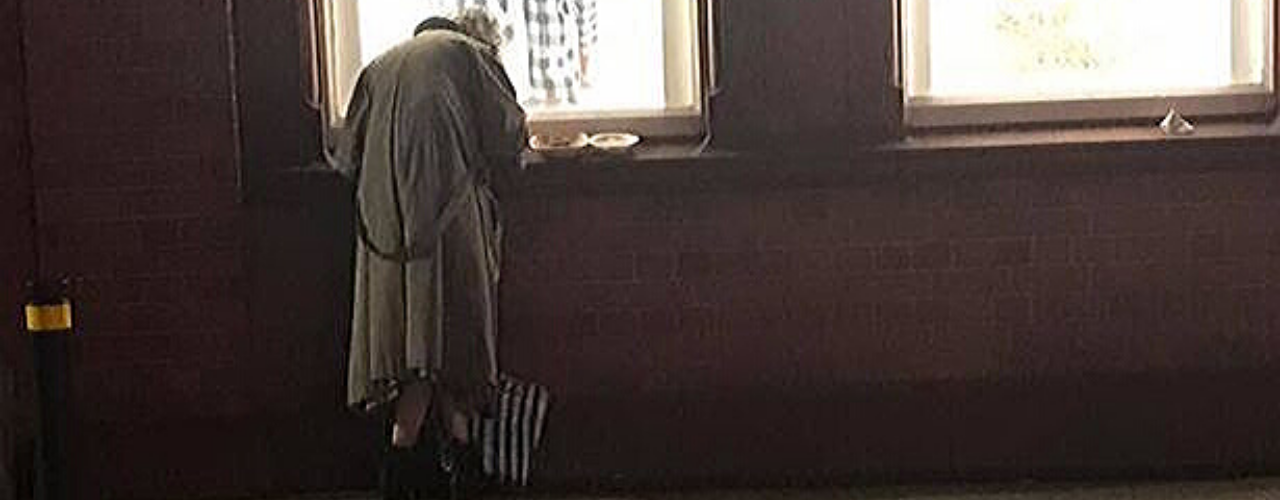
It has been difficult to remain unmoved by the many images of homelessness and poverty which have confronted us in the past weeks and months. A young boy kneels to eat a warm meal provided by a soup kitchen. Using a piece of cardboard, probably provided by a parent, he is trying to prevent the cold from the street getting into his bones.
An elderly woman, wrapped in a coat against the bracing January wind, eats a meal off a disposable plate from the windowsill of a Dublin department store. Along the Grand Canal, we saw the photos of a cordoned-off area following the severe, life-changing injuries received by an Eritrean man. He was asleep in a tent when it was cleared from the banks for the canal by a truck with a mechanical grab.
More suitable for a building site providing permanent housing, the use of a truck to remove and destroy the most flimsy and temporary of shelters was a truly troubling element of the story. This forced removal of homeless people’s tents and their few scant possessions is the natural continuation of a “hostile environment” approach from the Government and state bodies, which had previously involved deliberately flooding sections of the canal banks.
In the midst of campaigning for a General Election, why is the presence of homeless people so troubling for the story Irish politicians wish to tell?
Public spaces in Ireland are centred around consumption. Dublin is so blanketed with advertising that few areas of the city are free from the inducement to consume. Instead of seeing new apartment blocks with amenities for families, hotels are being built at a rapid pace for the tourists who visit brand Ireland. Expensive German cars and SUVs, long understood as a key identifier of wealth, displace cycling and walking as means to transverse the city. You could never tell we are human beings, not human consumers.
In Society of the Spectacle, Guy Debord describes this commodification of all public spaces as capital “spreading out to the periphery”, so that “society in its length and breadth becomes capital’s faithful portrait”. Australian academics, Jessica Gerrard and David Farrugia, understand the core of the society of the spectacle as when capital expands into the social realm, so that all the different activities that make up our lives lived in public are shaped by the desire for profit. The spectacle is both common-sense and illusory. It is the everyday world in which we find ourselves and try to navigate. We cannot escape it. It is a form of cultural hegemony. The spectacle is also an illusion. It gives the clean appearance of unity to the chaos under the surface of our cities. It offers a sheen of order that hides the injustices that emerge when money is king.
If current economic policy and the accompanying political vision in Ireland is based on well-rehearsed maxims like “a rising tide lifts all boats” or “equality of opportunity” or “a republic for those who get up early in the morning”, the sight of people living in poverty – lacking food and basic shelter – begins to cast doubt on the durability of this ideological vision. When we are caught up in the illusory “spectacle”, those who have “sight” are perceived as abnormal. To see through our commodified society and to perceive the fundamental humanity of every person, regardless of whether they have a home or a job, regardless of where they are born or what religion they practice, is to open yourself up to the charge of being “unrealistic”. You are meant to pay attention to the ads for new cars and expensive perfumes. The show will grind to a halt if we start worrying more about the hungry child and the homeless woman.
We should be both moved and angry at the intensifying poverty and homelessness in Ireland since 2008. Under various Governments we have seen needless policies of austerity which were, at best, incompetent, and, at worst, callous and cruel. Yet, we should parse the “sight” of homelessness is more close detail. For those who run the spectacle, homeless people have no meaningful purpose. They are not consumers, so they have little value in a capital-shaped world. They are perceived as commodities who can be warehoused; managed by entrepreneurial responses; or simply discarded into a lorry swept violently out of the view of commuters, workers and tourists.
We are trained into carelessness. The sight of homeless people in tents or eating from disposable plates ought to shock us. Instead, it becomes just that; a “sight”- an abnormality, an exception to the rule. We pass it by and go back to business as usual. The truth about that “sight” is that it is a vision that peers through the illusory nature of the neoliberal “spectacle”, revealing the deep impact austerity has had on social provision of basic needs. It is uncomfortable to see when so many choose to be blind. It is exhausting to perceive, when so many do not understand. But we must look at the injustice in our society directly if we ever hope to fight it.
Author: Keith Adams @keith_JCFJ

